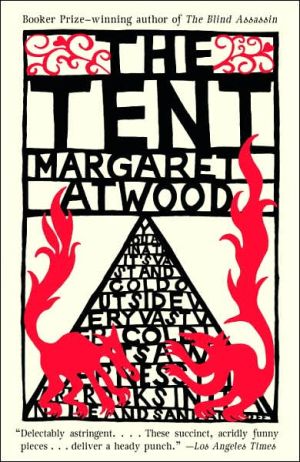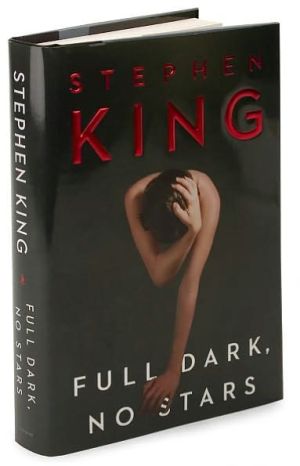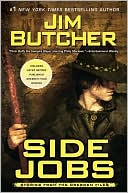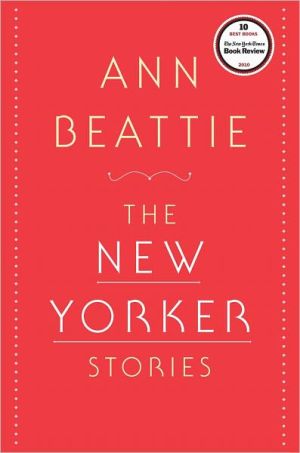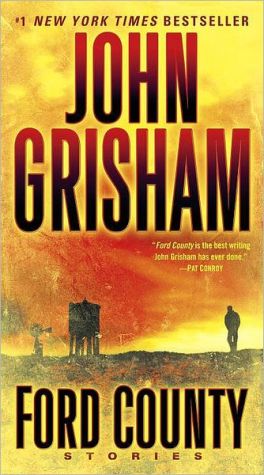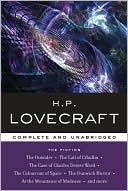The Tent
One of the world’s most celebrated authors, Margaret Atwood has penned a collection of smart and entertaining fictional essays, in the genre of her popular books Good Bones and Murder in the Dark, punctuated with wonderful illustrations by the author. Chilling and witty, prescient and personal, delectable and tart, these highly imaginative, vintage Atwoodian mini-fictions speak on a broad range of subjects, reflecting the times we live in with deadly accuracy and knife-edge precision.\ In...
Search in google:
One of the world’s most celebrated authors, Margaret Atwood has penned a collection of smart and entertaining fictional essays, in the genre of her popular books Good Bones and Murder in the Dark, punctuated with wonderful illustrations by the author. Chilling and witty, prescient and personal, delectable and tart, these highly imaginative, vintage Atwoodian mini-fictions speak on a broad range of subjects, reflecting the times we live in with deadly accuracy and knife-edge precision.In pieces ranging in length from a mere paragraph to several pages, Atwood gives a sly pep talk to the ambitious young; writes about the disconcerting experience of looking at old photos of ourselves; gives us Horatio's real views on Hamlet; and examines the boons and banes of orphanhood. “Bring Back Mom: An Invocation” explores what life was really like for the “perfect” homemakers of days gone by, and in “The Animals Reject Their Names,” she runs history backward, with surprising results. Chilling and witty, prescient and personal, delectable and tart, The Tent is vintage Atwood. Enhanced by the author’s delightful drawings, it is perfect for Valentine’s Day, and any other occasion that demands a special, out-of-the-ordinary gift.Publishers WeeklyBiting anger, humor and interest in the fantastic have marked inimitable Atwood works like The Handmaid's Tale, The Blind Assassin and Oryx and Crake. In this odd set of terse, mostly prose ripostes, Atwood takes stock of life and career-"this graphomania in a flimsy cave"-and finds both come up short. Staged from behind screens of updated fables and myths ("Salome Was a Dancer" begins "Salome went after the Religious Studies teacher"), the pieces rage icily against the constraints of gender, age (witheringly: "I have decided to encourage the young"), fame and even "Voice": "What people saw was me. What I saw was my voice, ballooning out in front of me like the translucent green membrane of a frog in full trill." Along with a few poems and childlike line drawings, what keeps this collection of 30-odd fictions from being a set of rants is the offhanded intimacy and acerbic self-knowledge with which Atwood delivers them: "The person you have in mind is lost. That's the picture I'm getting." Threaded throughout are dead-on asides on the tyrannies of time and the limits of truth telling in society, so that when Hoggy Groggy hires Foxy Loxy to silence Chicken Little forever, there is no doubt with whom the author's sympathies lie. (Jan. 10) Copyright 2005 Reed Business Information.
The Tent\ \ By Margaret Atwood \ Random House\ Margaret Atwood\ All right reserved.\ ISBN: 0385516681 \ \ \ Chapter One\ Life Stories\ \ Why the hunger for these? If it is a hunger. Maybe it's more like bossiness. Maybe we just want to be in charge, of the life, no matter who lived it.\ \ It helps if there are photos. No more choices for the people in them -- pick this one, dump that one. The livers of the lives in question had their chances, most of which they blew. They should have spotted the photographer in the bushes, they shouldn't have chewed with their mouths open, they shouldn't have worn the strapless top, they shouldn't have yawned, they shouldn't have laughed: so unattractive, the candid denture. So that's what she looked like, we say, connecting the snapshot to the year of the torrid affair. Face like a half-eaten pizza, and is that him, gaping down her front? What did he see in her, besides cheap lunch? He was already going bald. What was all the fuss about?\ \ I'm working on my own life story. I don't mean I'm putting it together; no, I'm taking it apart. It's mostly a question of editing. If you'd wanted the narrative line you should have asked earlier, when I still knew everything and was more than willing to tell. That was before I discovered the virtues of scissors, the virtues of matches.\ \ I was born, I would have begun, once. But snip, snip, away go mother and father, white ribbons of paper blownby the wind, with grandparents tossed out for good measure. I spent my childhood. Enough of that as well. Goodbye dirty little dresses, goodbye scuffed shoes that caused me such anguish, goodbye well-thumbed tears and scabby knees, and sadness worn at the edges.\ \ Adolescence can be discarded too, with its salty tanned skin, its fecklessness and bad romance and leakages of seasonal blood. What was it like to breathe so heavily, as if drugged, while rubbing up against strange leather coats in alleyways? I can't remember.\ \ Once you get started it's fun. So much free space opens up. Rip, crumple, up in flames, out the window. I was born, I grew up, I studied, I loved, I married, I procreated, I said, I wrote, all gone now. I went, I saw, I did. Farewell crumbling turrets of historic interest, farewell icebergs and war monuments, all those young stone men with eyes upturned, and risky voyages teeming with germs, and dubious hotels, and doorways opening both in and out. Farewell friends and lovers, you've slipped from view, erased, defaced: I know you once had hairdos and told jokes, but I can't recall them. Into the ground with you, my tender fur-brained cats and dogs, and horses and mice as well: I adored you, dozens of you, but what were your names?\ \ I'm getting somewhere now, I'm feeling lighter. I'm coming unstuck from scrapbooks, from albums, from diaries and journals, from space, from time. Only a paragraph left, only a sentence or two, only a whisper.\ \ I was born.\ I was.\ I. \ \ \ Excerpted from The Tent by Margaret Atwood Excerpted by permission.\ All rights reserved. No part of this excerpt may be reproduced or reprinted without permission in writing from the publisher.\ Excerpts are provided by Dial-A-Book Inc. solely for the personal use of visitors to this web site. \ \
Life stories3Clothing dreams7Bottle9Impenetrable forest13Encouraging the young17Voice21No more photos25Orphan stories27Gateway33Bottle II37Winter's tales43It's not easy being half-divine47Salome was a dancer51Plots for exotics55Resources of the Ikarians59Our cat enters heaven63Chicken little goes too far67Thylacine ragout73The animals reject their names and things return to their origins77Three novels I won't write soon85Take charge93Post-colonial97Heritage house101Bring back mom : an invocation105Horatio's version115King Log in exile121Faster125Eating the birds127Something has happened131Nightingale133Warlords139The tent143Time folds147Tree baby149But it could still153
\ Publishers WeeklyBiting anger, humor and interest in the fantastic have marked inimitable Atwood works like The Handmaid's Tale, The Blind Assassin and Oryx and Crake. In this odd set of terse, mostly prose ripostes, Atwood takes stock of life and career-"this graphomania in a flimsy cave"-and finds both come up short. Staged from behind screens of updated fables and myths ("Salome Was a Dancer" begins "Salome went after the Religious Studies teacher"), the pieces rage icily against the constraints of gender, age (witheringly: "I have decided to encourage the young"), fame and even "Voice": "What people saw was me. What I saw was my voice, ballooning out in front of me like the translucent green membrane of a frog in full trill." Along with a few poems and childlike line drawings, what keeps this collection of 30-odd fictions from being a set of rants is the offhanded intimacy and acerbic self-knowledge with which Atwood delivers them: "The person you have in mind is lost. That's the picture I'm getting." Threaded throughout are dead-on asides on the tyrannies of time and the limits of truth telling in society, so that when Hoggy Groggy hires Foxy Loxy to silence Chicken Little forever, there is no doubt with whom the author's sympathies lie. (Jan. 10) Copyright 2005 Reed Business Information.\ \ \ \ \ Library Journal"Bring Back Mom"; "The Animals Reject Their Names." Just two treats in this fiction/essays combo from the inimitable Atwood. Copyright 2005 Reed Business Information.\ \ \ School Library JournalAdult/High School-A quirky collection of short tales and a few poems that can be read in any order. Although not all of these selections will appeal to teens, some will, especially "Plots for Exotics," in which the narrator, who has always aspired to be a main character, has to apply for a job at the plot factory, where he learns he is not main-character material. Others, such as "Our Cat Enters Heaven," will also engage teen readers. The pieces are brief and varied in style. The ironic and often sarcastic tone is one that many teens will appreciate. Simple line drawings appear throughout. As a whole, the book should appeal to anyone who appreciates a wry and somewhat biting look at society.-Judy Braham, George Mason Regional Library, Annandale, VA Copyright 2006 Reed Business Information.\ \ \ \ \ Kirkus ReviewsTop-of-the-head riffs, the majority occupying a peculiar middle ground between fiction and allegory, from the Canadian novelist (Oryx and Crake, 2003, etc.). Most are a mere few pages, some are as short as a single paragraph, and all are as slight as their length suggests. Atwood's sardonic humor flashes from time to time-"We've erected a few ruins, but they are not convincing, even from a distance," mourns the inhabitant of an impoverished and remote fictional coastal community in "Resources of the Ikarians"-but occasional good lines don't really redeem this odd amalgam of cranky musings ("No more photos. Surely there are enough"), slightly bent myths (Helen of Troy, married to a police chief, runs off to the city and gives interviews about women following their hearts in "It's Not Easy Being Half-Divine") and other peculiar workings of well-known material ("Horatio's Version" of Hamlet, "Chicken Little Goes Too Far," etc.). "The Animals Reject Their Name" and "Bring Back Mom: An Invocation" seem somewhat less weird, simply because they're both in verse. Also reasonably readable are "Warlords," a stinging depiction of society's inherent violence, and "Winter's Tales," a funny portrait of an older narrator perplexing young listeners with faintly absurd recollections of the past ("there were no bare midriffs, and only sailors and convicts had tattoos"). But most of the longer prose pieces-longer meaning four to eight pages-are exercises in self-indulgence, from "Three Novels I Won't Write Soon" (most readers will murmur "thank goodness" after reading it) to "The Tent," which presumably is intended as a tribute to the creative process but merely annoys with its cloudy metaphors. If Atwood'sname weren't attached, no publisher would bother putting this trivia between book covers.\ \
